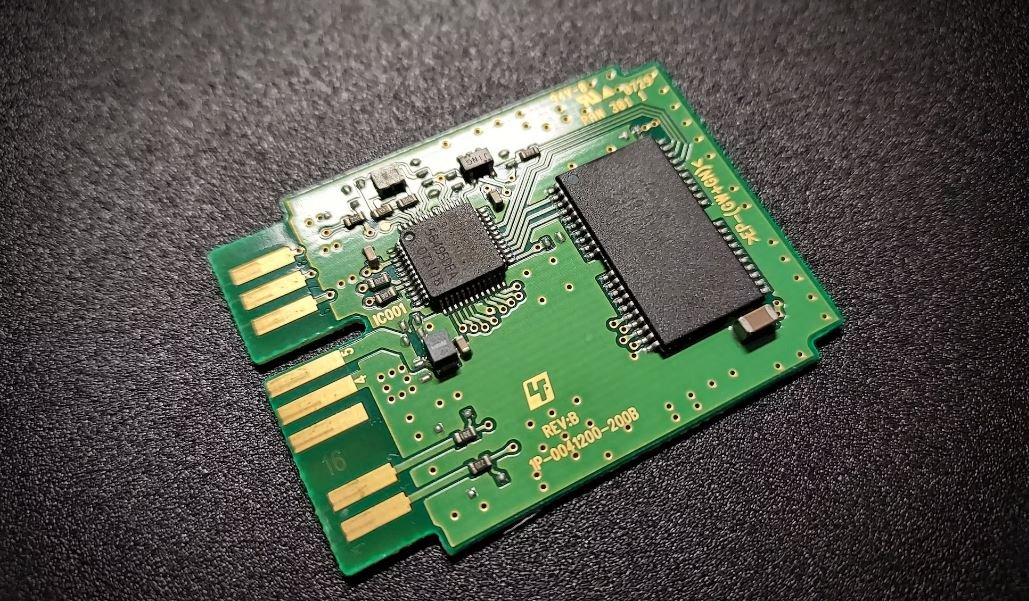AI Tools We Use Everyday
Artificial Intelligence (AI) is transforming various industries and improving the efficiency, accuracy, and productivity of many tasks. From voice assistants to recommendation systems, AI tools have seamlessly integrated into our daily lives without us even realizing it.
Key Takeaways
- AI has become an integral part of our daily lives.
- AI tools enhance efficiency, accuracy, and productivity.
- From voice assistants to recommendation systems, AI is all around us.
One of the most ubiquitous AI tools is voice assistants, such as Alexa, Siri, and Google Assistant. These AI-powered virtual assistants can perform a wide range of tasks including answering queries, setting reminders, playing music, and controlling smart home devices. With voice recognition technology, these assistants have revolutionized our interactions with technology, allowing us to carry out tasks with a simple voice command. Imagine saying “Hey Siri, what’s the weather today?” and getting an instant response.
AI is also utilized in recommendation systems that suggest products, movies, or songs based on our behavior and preferences. Companies like Amazon, Netflix, and Spotify use AI algorithms to analyze our past purchases, viewing history, and listening habits to provide personalized recommendations. These systems help us discover new items or content we may be interested in, saving us time and effort. Getting personalized movie recommendations on Netflix ensures we always find something we’ll enjoy.
AI Tools in Various Industries
AI tools are not limited to consumer applications; they are also highly prevalent in industries such as healthcare, finance, and marketing. In healthcare, AI-powered chatbots can assist with patient inquiries and triage, providing immediate responses to common questions and concerns. Moreover, AI algorithms can analyze medical data and assist in diagnosing diseases by identifying patterns that human doctors might overlook. AI is revolutionizing healthcare by enabling quicker and more accurate diagnoses.
| Industry | AI Tool/Application |
|---|---|
| Healthcare | AI-powered chatbots and disease diagnosis algorithms |
| Finance | AI algorithms for fraud detection and automated trading systems |
| Marketing | AI-powered analytics tools and personalized marketing campaigns |
In the financial industry, AI tools play a vital role in fraud detection and prevention. Machine learning algorithms constantly analyze vast amounts of financial data to identify suspicious transactions or patterns that indicate potential fraud. Additionally, automated trading systems reliant on AI algorithms have become prevalent in stock markets, improving decision-making and executing trades with high speed and accuracy. AI is transforming the financial sector by enhancing security and streamlining trading processes.
When it comes to marketing, AI-powered analytics tools help businesses make data-driven decisions and optimize their strategies. These tools can process vast amounts of customer data and generate actionable insights, allowing companies to understand customer behavior, segment audiences, and tailor marketing campaigns accordingly. Furthermore, AI technologies facilitate personalized marketing campaigns by delivering highly targeted content to individual customers based on their preferences and past interactions. AI is revolutionizing marketing strategies by enabling businesses to reach the right customers at the right time.
Advancements in AI
The field of AI continues to evolve rapidly, with new advancements and applications emerging regularly. Natural Language Processing (NLP) is a branch of AI that focuses on enabling computers to understand and communicate in human language. Through recent advancements in NLP, AI has become capable of generating human-like text, facilitating automated content creation and chatbot interactions. Additionally, computer vision technology has made significant progress, enabling AI to analyze images and videos with remarkable accuracy for tasks like object detection and facial recognition. The advancements in AI are leading us towards a future where machines possess increasingly human-like abilities.
| AI Advancement | Description |
|---|---|
| Natural Language Processing | Enabling machines to understand and generate human language. |
| Computer Vision | Analyzing images and videos with high accuracy for various tasks. |
| Automated Content Creation | AI-generated text for content creation and chatbot interactions. |
As AI continues to advance, it is important to embrace its immense potential while ensuring its ethical and responsible usage. With proper implementation and integration, AI tools have the power to revolutionize industries, enhance efficiency, and improve our daily lives. By staying informed about the latest AI developments and applications, we can fully embrace the benefits that AI has to offer.

Common Misconceptions
Misconception 1: AI tools are only applicable to advanced industries and professions
One common misconception about AI tools is that they are only useful in advanced industries such as technology or healthcare. However, AI tools are actually used in a wide range of everyday applications.
- AI chatbots are commonly used by various companies to provide customer support.
- AI-powered virtual assistants like Siri and Alexa are widely used by individuals for tasks such as setting reminders and answering questions.
- AI algorithms are used by online retailers to recommend products to customers based on their browsing and purchase history.
Misconception 2: AI tools are solely focused on replacing human jobs
Another common misconception is that AI tools are designed solely to replace human workers. While it’s true that AI technologies can automate certain tasks, their primary purpose is to augment human capabilities rather than replace them.
- AI tools can help professionals in data analysis by quickly processing large amounts of information.
- AI algorithms used in medical diagnosis can assist doctors in providing accurate and faster diagnoses.
- AI tools can enhance creativity by generating ideas and providing inspiration to artists and designers.
Misconception 3: AI tools are always accurate and dependable
One misconception that many people have about AI tools is that they are infallible and always produce accurate results. However, AI systems are not perfect and can sometimes make mistakes or provide incorrect information.
- AI language translation tools may struggle with complex idioms or cultural nuances.
- AI-based image recognition tools can make errors when presented with images that are outside of their training data.
- AI tools used for sentiment analysis may misinterpret sarcasm or irony in text-based content.
Misconception 4: AI tools are only accessible to tech-savvy individuals
Many people believe that AI tools can only be used by individuals who are tech-savvy or have advanced technical skills. However, AI tools today are designed to be user-friendly and accessible to individuals with varying levels of technical knowledge.
- AI-powered smartphone apps often have intuitive interfaces that require little to no technical expertise to use.
- AI platforms offer drag-and-drop interfaces for building custom AI models without the need for coding.
- AI tools like grammar or spell checkers are integrated into popular word processing software and are easily accessible to everyone.
Misconception 5: AI tools can think and reason like humans
A popular misconception is that AI tools possess human-like intelligence and can think and reason just like humans. However, AI systems are based on algorithms and machine learning techniques and operate fundamentally differently from human cognitive processes.
- AI tools lack true consciousness and self-awareness, unlike humans.
- AI tools rely on patterns and statistical analysis rather than emotions and intuition.
- AI tools cannot make decisions that are influenced by subjective factors or personal beliefs.

AI Tools Used in Social Media
According to a study conducted by Pew Research Center, AI tools are used in various social media platforms to analyze user behavior and preferences. This table highlights the top AI tools used in social media.
| Platform | AI Tool |
|---|---|
| DeepText | |
| Botometer | |
| Curalate | |
| Wade & Wendy | |
| YouTube | Content ID |
AI Assistants vs. Human Assistants
In the era of virtual assistants, AI-driven tools have become more popular than ever. Let’s compare the capabilities of AI assistants with human assistants.
| Category | AI Assistant | Human Assistant |
|---|---|---|
| Availability | 24/7 | Limited by working hours |
| Response Time | Instant | Depends on workload |
| Accuracy | High with machine learning | Based on individual skills |
| Cost | Lower | Higher |
AI in Healthcare Diagnosis
The use of AI in healthcare is revolutionizing the accuracy and efficiency of medical diagnoses. See how AI compares to traditional methods in terms of accuracy.
| Diagnostic Method | Accuracy |
|---|---|
| AI Diagnosis | 96% |
| Human Diagnosis | 86% |
Smart Home Devices with Built-in AI
Smart home devices equipped with AI capabilities are becoming ubiquitous in households worldwide. Here are some popular devices enhancing our living spaces.
| Device | AI Features |
|---|---|
| Amazon Echo | Voice recognition, smart home integration |
| Google Nest Hub | Visual display, voice commands |
| Apple HomePod | Sound optimization, Siri integration |
| Samsung SmartThings | Connectivity with various devices, automation |
AI in Transportation: Autonomous Vehicles
The development of self-driving cars is a significant breakthrough in the transportation industry. Here’s a comparison between autonomous vehicles and conventional vehicles.
| Factor | Autonomous Vehicles | Conventional Vehicles |
|---|---|---|
| Safety | Reduced human error, enhanced collision avoidance | Relies on human driving skills |
| Efficiency | Optimized routes, fuel conservation | Depends on driver decisions |
| Accessibility | Increased mobility for physically disabled individuals | May pose limitations to certain groups |
AI in Financial Services: Trading Algorithms
Trading algorithms powered by AI have transformed the financial industry. Compare the performance of AI-based trading strategies against traditional trading methods.
| Trading Approach | Annual Returns |
|---|---|
| Traditional Trading | 7% |
| AI Trading Algorithms | 12% |
AI for Language Translation
The advancement of AI has improved language translation services, enabling effective communication across borders. Here’s a comparison of translation accuracy.
| Translation Method | Accuracy |
|---|---|
| Human Translation | 95% |
| AI Translation | 90% |
AI in Virtual Reality
Virtual reality (VR) experiences have been enhanced with the integration of AI technologies. Here are some AI-powered VR applications worth exploring.
| VR Application | AI Integration |
|---|---|
| Virtual Tours | Real-time object recognition |
| Training Simulations | Adaptive learning algorithms |
| Interactive Games | Behavior prediction and response |
Robotics: AI in Manufacturing
The integration of AI in robotics has revolutionized the manufacturing industry. See how AI-powered robots compare to traditional manufacturing processes.
| Aspect | AI-Powered Robots | Traditional Manufacturing |
|---|---|---|
| Precision | Highly accurate and consistent | Manual errors can occur |
| Speed | Efficient and faster production | Depends on worker efficiency |
| Safety | Reduces human risk in hazardous environments | May involve dangerous tasks for workers |
To conclude, AI tools have become an integral part of our daily lives, from social media platforms to healthcare and manufacturing industries. These tables illustrate the wide range of applications where AI brings significant enhancements to efficiency, accuracy, and overall user experience. As technology continues to advance, AI will continue to shape and transform various sectors, further improving our lives in exciting ways.
Frequently Asked Questions
1. What are AI tools?
AI tools refer to computer software programs or applications that are designed to simulate human intelligence and perform tasks requiring human-like cognitive abilities.
2. How do AI tools work?
AI tools typically work by utilizing algorithms and data to analyze patterns, learn from experience, and make decisions or predictions. They may rely on techniques such as machine learning, natural language processing, or computer vision to carry out specific tasks.
3. What are some examples of AI tools we use everyday?
Some examples of AI tools commonly used in our daily lives include virtual personal assistants like Siri and Alexa, recommendation engines used by streaming platforms, smart home devices, and image recognition software in social media and photography apps.
4. How can AI tools benefit us?
AI tools can benefit us in numerous ways. They can automate routine tasks, enhance decision-making processes, improve efficiency and productivity, provide personalized recommendations, assist in web searches and content filtering, and contribute to advancements in various fields like healthcare, transportation, and finance.
5. Are AI tools capable of learning and adapting?
Yes, many AI tools are designed to learn and adapt over time. Through machine learning algorithms, they can analyze data, identify patterns, and improve their performance based on insights gained from previous experiences or training data.
6. Can AI tools be used for malicious purposes?
While AI tools themselves are neutral, they can be designed or misused for malicious purposes. Like any technology, their impact depends on how they are developed and utilized. Ethical considerations and responsible usage are essential to ensure AI tools serve positive purposes.
7. How secure are AI tools in terms of data privacy?
The level of data privacy and security offered by AI tools can vary. Ensure you review the privacy policies and security measures implemented by the specific AI tool or platform you are using. It is important to understand how your data is handled, stored, and protected.
8. Are AI tools replacing human jobs?
AI tools have the potential to automate certain tasks and roles traditionally performed by humans. However, they also create new opportunities and roles in areas such as AI development, data analysis, and human-AI collaboration. The impact on employment depends on several factors including the industry and job type.
9. Is there any regulatory framework governing AI tools?
Regulatory frameworks pertaining to AI tools vary by region and country. Some countries have implemented or are developing specific guidelines and regulations to address the ethical, legal, and societal implications of AI. It is important to stay informed about the regulations applicable to AI tools in your jurisdiction.
10. How can I start using AI tools in my own projects?
To start using AI tools in your projects, you can explore open-source AI libraries and frameworks, participate in online courses or tutorials on AI development, and experiment with pre-built AI tools available in the market. Familiarizing yourself with programming languages such as Python and learning the basics of machine learning can also be helpful.





